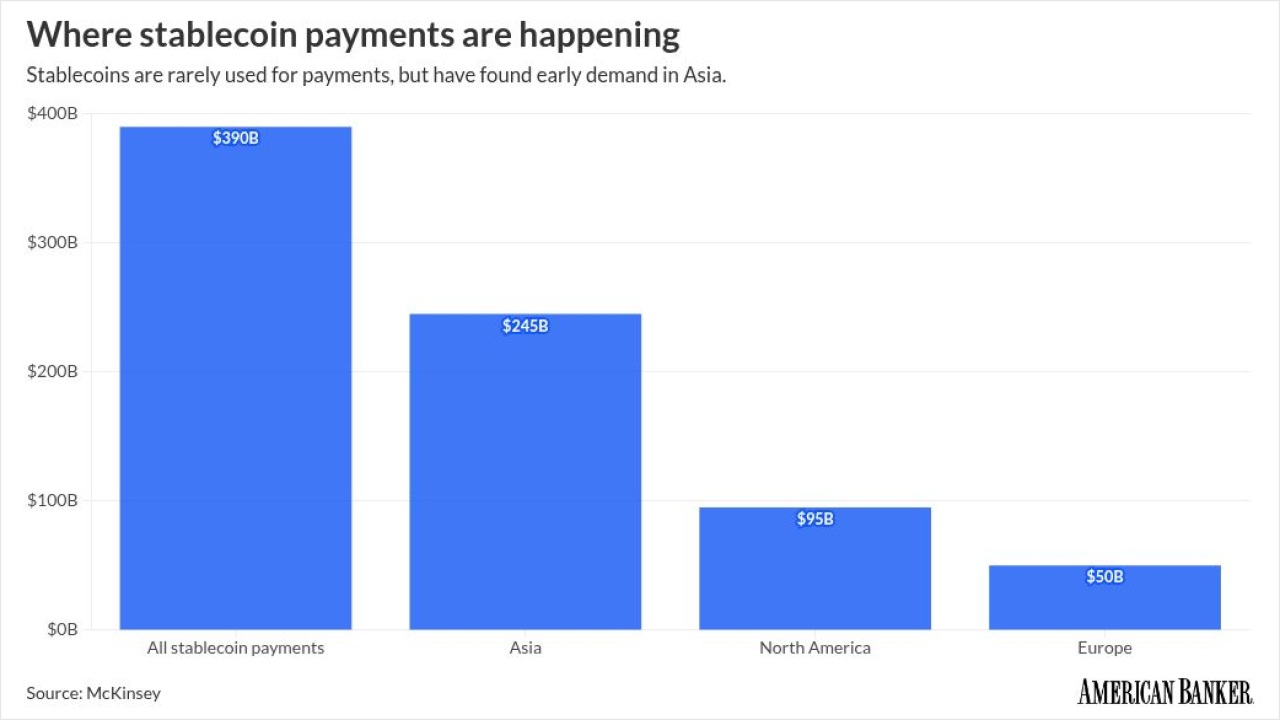-
William Cooper, TCF's chairman and chief executive, said Tuesday that its lawsuit against the Federal Reserve Board to block caps on debit card interchange fees is about more than preserving revenue, and that the industry could face worse restrictions if it stands idle.
October 12
TCF Financial Corp. may not be alone in its legal fight against prospective restrictions on debit interchange rates.
Other debit card issuers are likely to pledge support for TCF's Oct. 12 lawsuit, analysts say. The complaint against the Federal Reserve Board challenges the constitutionality of a provision in the Dodd-Frank Act requiring the Fed to cap debit interchange rates.
"Issuers are talking to their lawyers to see if they have any legal traction, and, if so, they may get behind it," said Rodman K. Reef, the chairman and chief executive of the Larchmont, N.Y., card consultancy Reef Karson & Co.
Oliver I. Ireland, a payments industry regulation expert and partner in the Morrison & Foerster LLP law firm in Washington, said other issuers probably will file friend-of-the-court briefs supporting TCF's suit.
"There are constitutional issues here, and you have to delve pretty deeply into them to assess which way it's going to go," Ireland said. "But this is a pretty dramatic piece of legislation that has a very major effect on a lot of institutions, and the idea that someone has sued is not surprising to me."
First Citizens Bank, a 400-branch debit-issuing institution based in Roanoke, Va., views the lawsuit as "hugely positive," said William Shaw, the company's group vice president.
"It makes sense that [the provision] poses a constitutional question because it waives the effect for certain banks and not others and interferes with our lines of business," he said.
TCF began quietly planning a lawsuit contesting the Durbin Amendment the moment Congress voted to pass the bill in July, said William Cooper, its CEO.
The bank moved as quickly as possible, Cooper said, and the Oct. 12 filing date also happens to be the day that the Fed required TCF to return a survey with information on its debit card services and costs.
Cooper said TCF hopes its lawsuit may block enforcement of new debit rules altogether — or at least slow it down.
The Fed has not said when it will issue proposed debit interchange regulations. Language in Dodd-Frank requires the Fed to adopt debit interchange regulations on April 21, and these rules would take effect July 21.
TCF attorney Tim Kelly, of the Minneapolis law firm Kelly & Berens, said the court may issue a preliminary injunction that would at least suspend enforcement of the law and interrupt its timetable. Cooper said the Fed may need to request more time from Congress to review the debit maket before it acts.
Beth Robertson, the director of payments research at Javelin Strategy and Research, said issuers may be "heartened" by TCF's lawsuit but "most issuers are still moving forward with their own scenarios and analyses for how they are going to cope under new debit interchange rates."
Sen. Dick Durbin, D-Ill., who wrote the amendment added to the Dodd-Frank Act on debit interchange, said in a press release that TCF's complaint "not only fundamentally misunderstands the law regarding interchange fees but … also ignores the facts." He said he is confident the courts will find the interchange provision "fair and constitutional."
Cooper said debit interchange is an essential element of providing checking account services. He declined to specify what portion of the issuer's retail checking account revenues debit interchange supplies but said it is "a large part."
The average TCF checking customer makes about 20 debit transactions and writes about six checks a month, he said.
Most of TCF's debit transactions are signature-based, Cooper said. Most regions in which it operates, excepting the Chicago area, have low levels of PIN-debit network coverage, he said. "Debit is not a profitable product in and of itself; it is just part of a delivery system. … I can't offer a checking account without debit," he said.
Merchants "paid millions to lobby Congress — at a time when banks were unpopular — to get an unfair advantage with this unconstitutional law," Cooper said; he stressed that nothing indicates merchants are planning to pass on to consumers their savings on potentially lower debit interchange rates.
"Debit is profitable to both merchants and banks; if it weren't profitable for merchants, they wouldn't accept it," he said.





